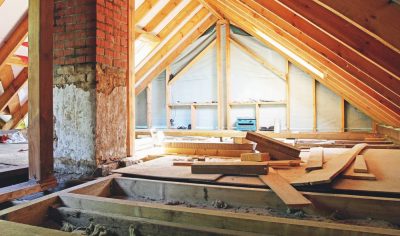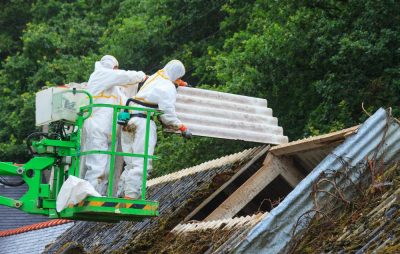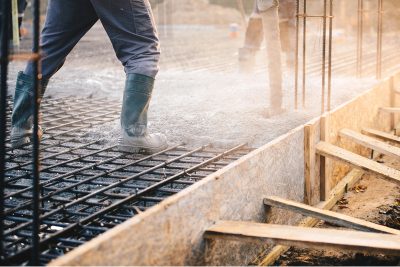- Oneflare /
- Cost Guides /
- Demolition

How much does it cost to demolish a house?
$50 - $100 per m2
What's on this page
- Cost to demolish a house?
- Demolition cost per square metre?
- How much are home excavation costs?
- Factors impacting demolition costs
- Demolition process
- Demolition permit
- Permit checklist
- Cost of different types of demolition
- Does the cost differ based on location?
- How to create an accurate estimate
- How to hire a demolition contractor
- How to save hiring a demolition contractor
Read Related Demolition Articles
How much does it cost to demolish a house?
The cost to knock down a house isn’t as expensive as building a new one, but it does need to be done correctly. The projected average demolition cost is $17,000 for a three-bedroom house. Unfortunately, many factors affect the price to demolish a home, and the price could run as high as $40,000.
The demolition costs can vary across Australia. Below is the average cost of a small house demolition job in different states.
| State | Average Cost for Demolition |
| NSW | $11,500 |
| VIC | $11,500 |
| WA | $8000 |
| QLD | $9500 |
How much does demolition cost per square metre?
If you are demolishing a home, you can expect to pay between $40 and $65 per square metre. The final house demolition cost depends on where you live and what materials are involved.
How much are home excavation costs?
Excavation can be affected by the amount of demolition equipment your contractor needs. It is about $140 per hour for a bobcat and a tip truck. Specialised digging attachments can add another $100 to $500 per day. These expenditures can be calculated into the final excavation costs per cubic metre, or they may be spelled out separately in a contract.
Factors impacting demolition costs
If projects were determined only by the size, layout and height, estimated costs would be more straightforward. However, a demolition company must take into account the type of materials, the amount of labour required, and related disposal costs like asbestos removal and other hazardous materials. The final cost to demolish will go up if you are removing the foundation, hiring an excavator or dealing with an asbestos removal contractor.
Size of the property: The size, complexity, and height of the building or home will affect your total cost. These aspects drive up labour costs and haul-away fees. If a contractor charges by the square metre, a larger or taller property will automatically cost more.
Foundation removal: A concrete slab requires a jackhammer to break it up. Some concrete also contains steel reinforcement which will need to be cut and therefore will increase the price. Your costs for the machinery may be charged per hour or per day.
Site orientation: A sloping property will require an excavator who may have jobs to do before, during or after the demolition.
Asbestos and mould: Removing a house with mould or asbestos will increase the total cost. A specialised contractor must be hired for asbestos removal. The cost of dealing with mould will relate to the location and the amount. A contractor will have to kill the mould before disposing of the debris.
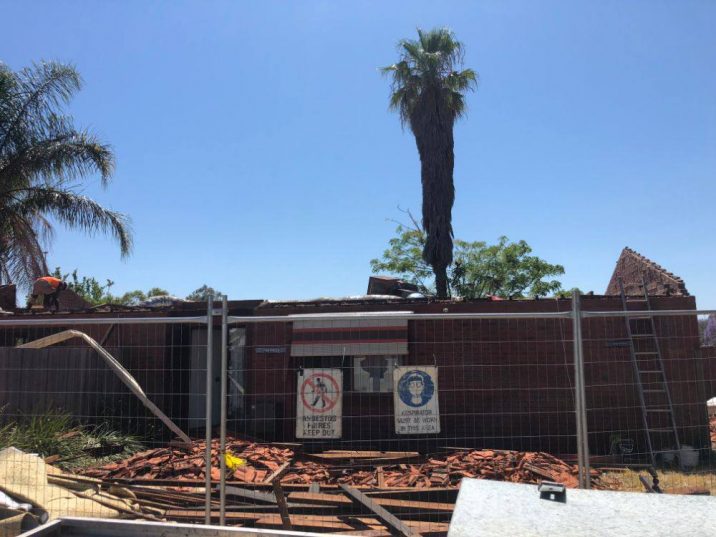
Asbestos roof demolition example. | Source: Halls Asbestos Removal (Licence WARA 287)
Type of Debris: The weight of the waste materials will have an impact on removal and disposal costs. Concrete and bricks are harder to demolish and more challenging to move. Furthermore, there is such a wide variety of debris that even in simple homes, that could take many labour hours to separate the different materials. These materials can include wood, drywall, insulation, brick, stone, bathroom fixtures, kitchen fixtures and cabinets.
Specialised equipment: The contractor will use bobcats or caterpillars to move large piles and objects. An excavation shovel may be required for removing the foundation. Dump trucks will then haul away the debris away.
Transportation costs: Any bid will take into account the time, fuel, and money it takes to bring larger equipment to your site and haul away debris.
Site accessibility: Demolishing a house that has no obstructions will cost less compared to a house surrounded by trees, built into a hill, or is very close to another home.
Pest removal: If the property is overrun with rodents, you will need to organise extermination first. Pest removal is a typical council requirement in an urban area.
Tree removal: You should consult with your arborist about which trees will need to be removed. Tree removal is a significant expense that may require a tree lopper. Before you agree to cut down a tree, find out if it can be saved by pruning or root removal. An inspection can cost about $100. Taking down the tree will probably be a minimum of $70 per hour, with the final price ranging from $300 to $10,000.
Local council planning regulations: Find out your local council regulations before you sign a contract to demolish a building. You’ll want to put aside $350 to $700 to a cover standard demolition permit.
Bushfire zones and heritage overlays: Construction and tree removal requires more supervision in bushfire zones. You may run into obstacles during your demolition if you don’t find out which regulations apply to your property. Likewise, a historical area may be subject to heritage overlays, which may prevent your demolition. In either case, getting approval may require a longer timeline.
Additional structures: Your costs will also increase if there are other structures on the property to be removed. A shed, garage or barn should be evaluated separately due to different materials. A pool will require an excavator and filling with dirt.
Whole Demolition process
When the team arrives for the actual demolition, this is usually one of the last steps in the process. Before demolition begins, you will need to:
- Determine where you will live during the demolition service. If you’re planning to live onsite, decide if the noise or commotion will affect you directly
- Get an inspection to identify asbestos or mould threats
- Ask for quotes from multiple demolition contractors with correct references, certifications and insurance
- With help from a contractor or lawyer, determine which demolition permits are needed
- Apply for the right permits and ask for a timeline
- Expect a building surveyor to visit the property to confirm the details in your permit request
- You may be told to seek an asset protection permit that covers common areas such as driveways, footpaths, and crossovers.
- Once you receive council approval, discuss with your contractor the safeguards needed before work begins
- Before work begins, make sure electricity, water and gas have been cut off. Work with your building contractor if these will be restored when your new home or project is complete. Also, consult with your demolition expert before cutting off the source of water
- Stay in close touch with your contractor to find out about unforeseen problems which may increase costs
- Make sure that all debris is hauled away per your contract with the demolisher
- When the excavation has been completed, your land needs to be restored to a usable, safe condition.
Demolition permit
Demolition is regulated just like construction. That’s why you must get permission from the council before the demolition. Your contractor should know the rules relative to your neighbourhood or state. It’s less expensive to pay for a license than to be fined for a violation. Before you commit to a quote, find out:
- Which permit or permits needed
- Cost of a permit
- Where to apply
- How to apply
- Steps to completion
- How the processing time for a permit will factor into the building timeline
Permit checklist
You’ll need many documents and photographs with your permit application. If you are dealing with asbestos, you may be required to show even more documentation. Here’s a sampling of what you may need:
- Marked site plans that clearly show the to-be-demolished buildings
- Photographs of the building and the adjoining properties
- Title for the Land (official copies run about $20 to $30)
- An approved demolisher or contractor’s name, registration and insurance details
- Copy of their public liability insurance policy
- Demolition description
- Protection plans for surrounding properties
- Waste disposal procedure
Price estimates of different types of demolition
Standard demolition: Today’s demolition is most likely completed with machinery, which cuts back on labour hours, but it doesn’t necessarily reduce costs. The average cost to demolish a house will run $55 per metre square for a wooden home and $65 per metre square for a brick or stone home. A minimum of $10,000 should be expected with costs reaching as high as $40,000 due to complexity, excavation costs, asbestos, size, materials, and other factors.
Excavator: Excavation will require the use of a two-tonne excavator, a bobcat, a tip truck, or similar up-to-date equipment. If attachments are needed, this will increase the cost. An excavator might be under $100 an hour. An additional $40 per hour may cover the cost of the truck. If you need attachments, a drill adds $180 per day, while a rock grab adds $100 per day. On the high end, a diamond blade rock saw might add $500 a day.
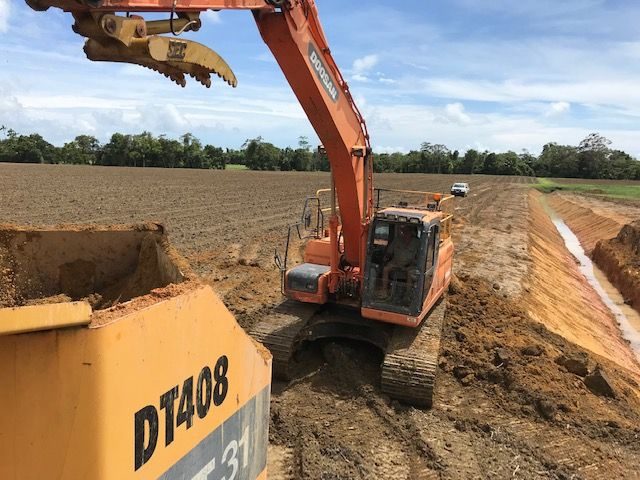
Orange excavator in action. | Source: King Reef Earthworks
Manual deconstruction: Manual demolitions can be approximately double the cost of standard demolitions. However, this is the greenest way to demolish a home. First, everything that can be saved is identified and removed for use elsewhere. As the house is taken apart by construction workers, good salvage and recyclable materials are identified. This sustainable demolition method dramatically decreases what is tipped into landfills.
Types of demolition projects
Interior: An interior demolition cost is $1,500 minimum for a non-load-bearing wall. A load-bearing wall will be a minimum of $4,500. Keep in mind that you will also pay for the restoration of the area around the wall and other renovation costs. You may want to factor in the price of a hotel, where you can avoid dangerous dust and bothersome noise.
Exterior: Removing an exterior wall for partial demolition may be necessary if you are adding to the home. If this cost is separate, the expense will be higher than an interior wall, especially if it is a load-bearing wall.
Residential: The house demolition projects are currently estimated at around $17,000 in Sydney and $16,000 in Melbourne. However, those costs rise with the presence of asbestos. It can be in the roof, cladding, insulation, floors, ceiling or walls of the home. If it is a widespread problem, it could easily double costs to $32,000.
Commercial buildings: The cost of commercial demolition is higher than for residential ones. In Sydney, a one-storey can cost about $100 per square metre, while two storeys can run about $120 per metre square. Three storeys buildings would boost that to approximately $130 per metre square. Asbestos will drive these costs up significantly.
Garage: When tearing down a garage, the main factors are the size, slope, presence of asbestos and the load-bearing wall, if attached to the house. You may pay as little as $2,000 for a detached structure, but this cost goes up to $4,000 or more with factors such as excavations and asbestos.
Does the cost differ based on location?
In Australia, the cost of house demolition and removal varies by region and population. A Melbourne home might be demolished for around $16,000 while the same home in Sydney might require closer to $17,500. For a sampling, here’s what you might pay to remove a brick home in these cities.
| City | Averaged demolition cost per hour |
| Perth | $40/m² |
| Brisbane | $45/m² |
| Adelaide | $45/m² |
| Melbourne | $55/m² |
| Sydney | $65/m² |
Tips on how to create an accurate estimate
Tip #1: To get a good idea of the necessary costs involved with your demolition project, you’ll need to get multiple onsite inspections. You can do this by asking for online bids from local demolition experts.
Tip #2: Ask your contractor about asbestos, excavation, and other factors that go beyond the per-square-metre price tag.
Tip #3: Find out how much the necessary permits will cost and factor that into the total.
How to hire a demolition contractor
When hiring, you will want to find a contractor with a good track record. Get references and ask recent clients about how the project went. Be sure to ask about potential situations that can lead to cost overruns. The contractor must have public liability insurance and the correct qualifications for demolition purposes.
Tips on how to save money when hiring a demolition contractor
Tip #1: Make sure your contractor spells out any reasons, in advance, that may cause cost overruns.
Tip #2: Find out if you can make any money by selling fixtures, wood and other materials.
Tip #3: Try to reduce the haul-away bill by finding charities or contractors that want the usable discards from the house’s demolition.
Tip #4: If you plan on rebuilding, try to use the same excavator. This way, the excavation work could be combined with work on the new home. It won’t save thousands, but it could save hundreds.
* The cost data is based on Oneflare and third-party sources
FAQ
How much does kitchen demolition cost?
Real Oneflare customer quotes
Chong's demolition job
Job type
Site demolition
Required permits
Demolition plan and permits completed
Area surrounding site
No significant trees
$12000inc. gst
Quoted by All Zones Demolition Group
Aman's demolition job
Job type
Site demolition
Type of property
3 bedroom house
Material of house
53 years old brick veneer
$17000inc. gst
Quoted by A To Z Demolition Pty Ltd
Voula's demolition job
Job type
Site demolition
Size of property
Less than 50m²
Absestos on site?
No
$11000inc. gst
Quoted by Advance Demolition
